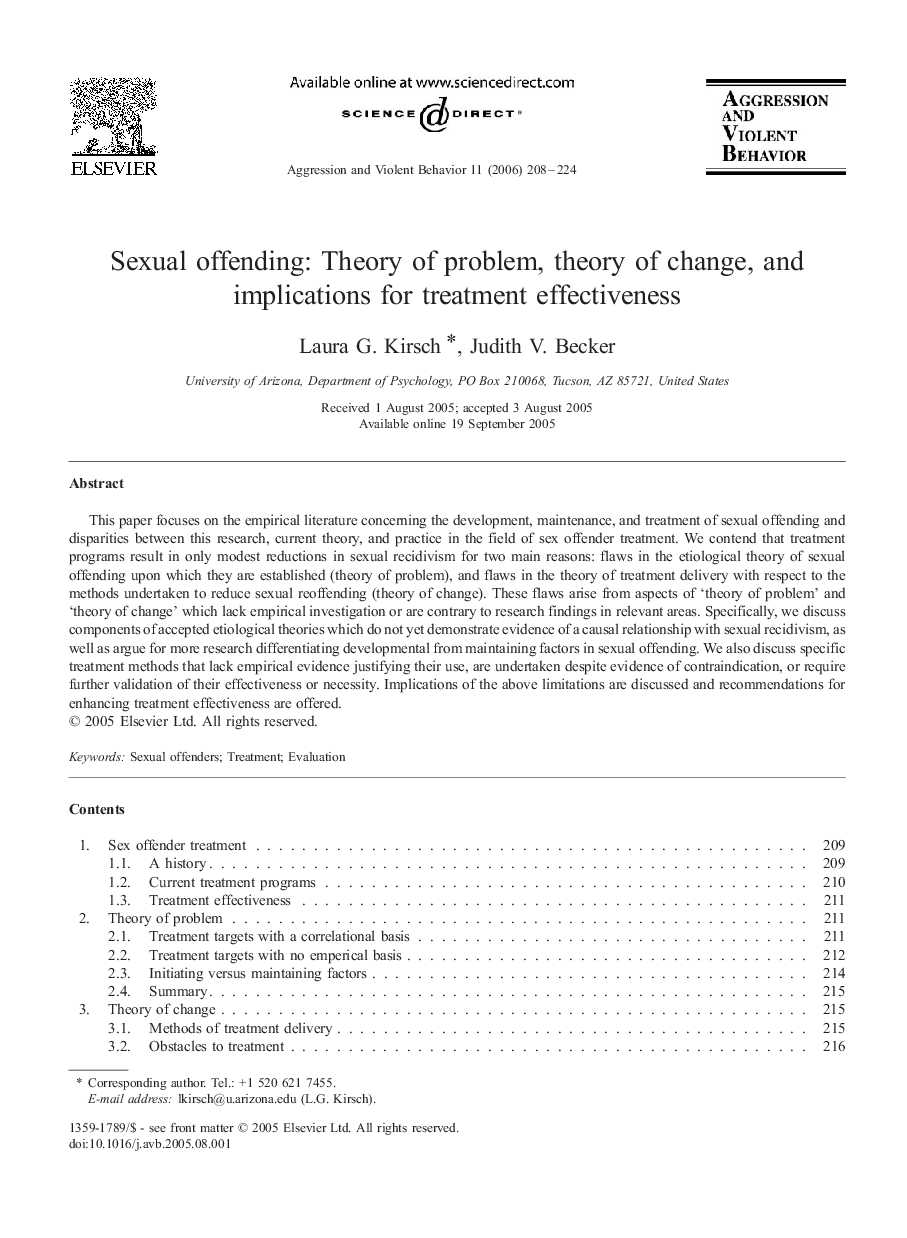| Article ID | Journal | Published Year | Pages | File Type |
|---|---|---|---|---|
| 95077 | Aggression and Violent Behavior | 2006 | 17 Pages |
This paper focuses on the empirical literature concerning the development, maintenance, and treatment of sexual offending and disparities between this research, current theory, and practice in the field of sex offender treatment. We contend that treatment programs result in only modest reductions in sexual recidivism for two main reasons: flaws in the etiological theory of sexual offending upon which they are established (theory of problem), and flaws in the theory of treatment delivery with respect to the methods undertaken to reduce sexual reoffending (theory of change). These flaws arise from aspects of ‘theory of problem’ and ‘theory of change’ which lack empirical investigation or are contrary to research findings in relevant areas. Specifically, we discuss components of accepted etiological theories which do not yet demonstrate evidence of a causal relationship with sexual recidivism, as well as argue for more research differentiating developmental from maintaining factors in sexual offending. We also discuss specific treatment methods that lack empirical evidence justifying their use, are undertaken despite evidence of contraindication, or require further validation of their effectiveness or necessity. Implications of the above limitations are discussed and recommendations for enhancing treatment effectiveness are offered.
